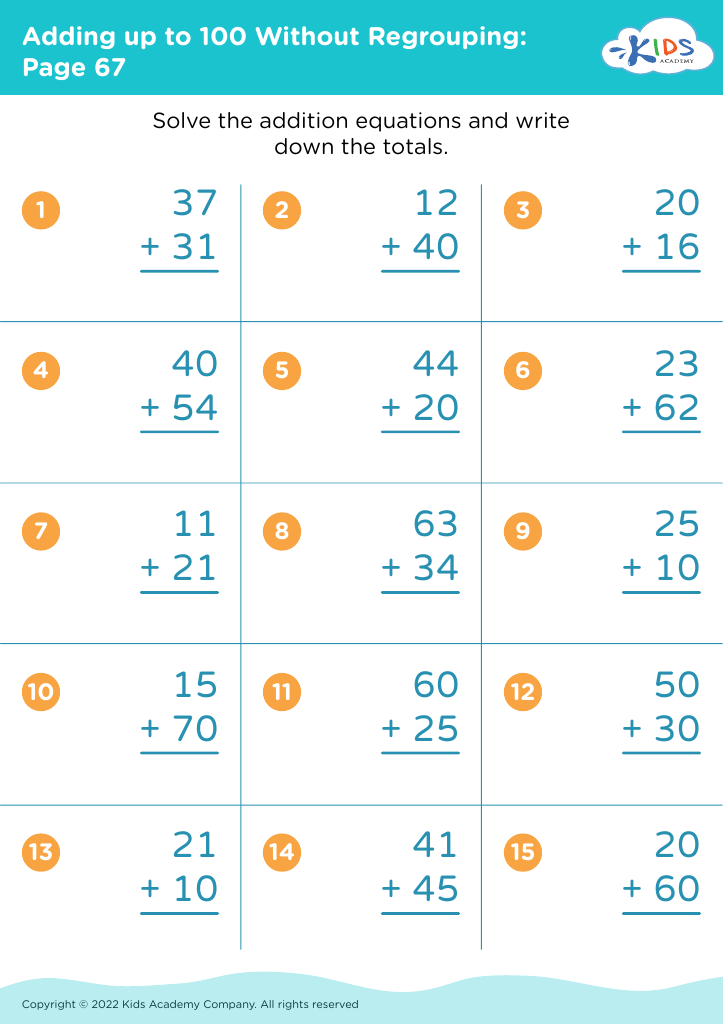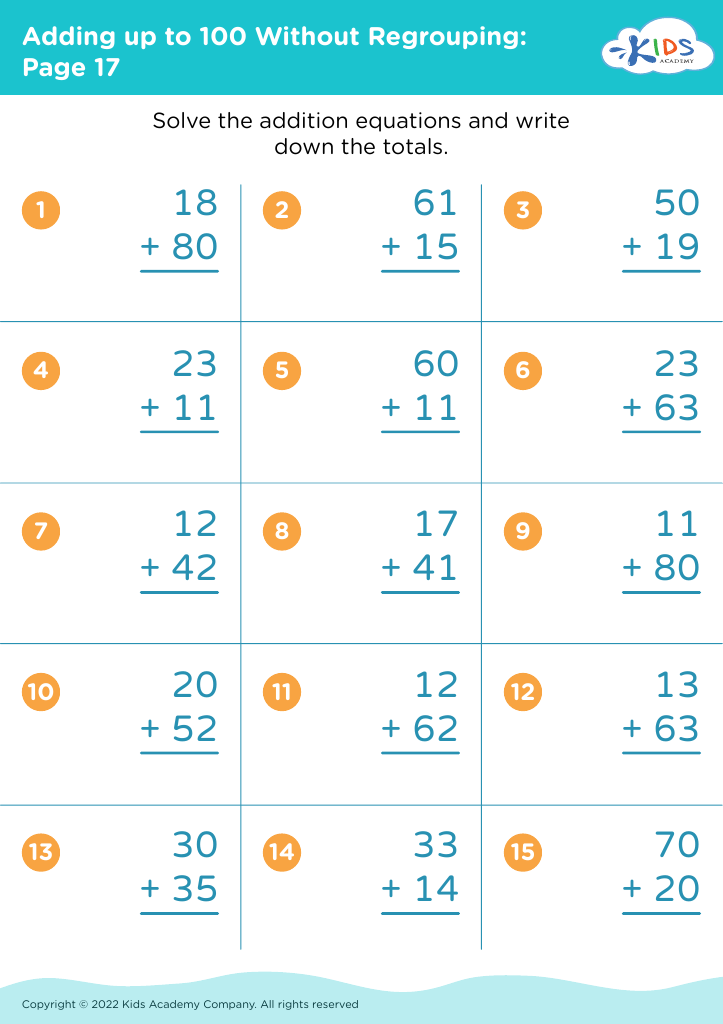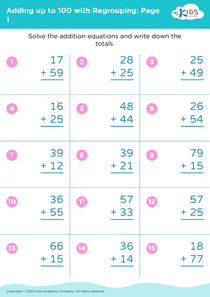Counting skills Adding up to 100 Without Regrouping Worksheets for Ages 3-7
6 filtered results
-
From - To
Enhance foundational math skills with our "Counting Skills: Adding up to 100 Without Regrouping Worksheets" designed for ages 3-7. These engaging activities offer a fun way to strengthen counting and addition abilities without the complexity of regrouping. Visual aids and simple problems help children confidently build their arithmetic skills, preparing them for more advanced math concepts. Perfect for at-home learning or classroom practice, our worksheets make mathematics exciting and accessible. Encourage young learners to explore numbers and develop their counting fluency with these expertly crafted resources from Kids Academy.
Counting skills and the ability to add up to 100 without regrouping are fundamental milestones for children ages 3-7. First and foremost, these skills lay a robust foundation for more complex mathematical concepts. Counting and simple addition enhance cognitive abilities like pattern recognition, sequencing, and logical thinking. These early math skills are directly linked to improved performances in later education stages, including more comprehensive arithmetic and problem-solving tasks.
Moreover, proficiency in counting and adding boosts a child’s confidence and fosters a love for learning. When children can effortlessly navigate through numbers and basic addition, they experience a sense of accomplishment, which encourages further exploration into math and other subjects.
Parents and teachers who engage children in counting and simple addition activities witness improvements in not only academics but also practical life skills. Everyday tasks, such as shopping or cooking, become learning opportunities. Such real-world applications of math reinforce the importance of numerical skills, making children more adept decision-makers and problem-solvers.
In summary, early proficiency in counting and adding without regrouping is crucial. It sets the stage for advanced learning, nurtures a positive self-image, and equips children with essential life skills. Therefore, it’s imperative for parents and teachers to prioritize and support these foundational competencies.

















